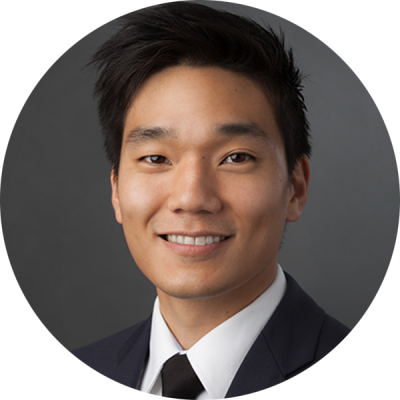
Joseph Shin
Systemic sclerosis (SSc) is a complex disease in which previously healthy young adults show an intractable predisposition for fibrosis of the skin and internal organs. It is among the most devastating rheumatic disease, with a 10-year mortality rate approximating 30%. In the absence of a major defined genetic contribution to disease, the pathogenic mechanism remains unknown. Treatments are largely symptomatic and often ineffective. Under the mentorship of Hal Dietz, M.D., I found that dermal fibroblasts in SSc patients maintained elevated expression of a dominant profibrotic cytokine called TGFB2, through constitutive epigenetic activation of a novel enhancer. This pathologic epigenetic mechanism was found highly dependent on another player called BRD4, the pharmacologic inhibition of which resulted in reversal of dermal fibrosis in SSc skin explants. These findings advance an epigenetic mechanism of fibrosis in SSc and inform a regulatory mechanism of TGFB2.
Questions & Answers
Why did you choose Johns Hopkins for your work?
I chose Johns Hopkins because of my classmates. I noticed that there are many institutions in the country with amazing scientists and exciting projects. But I found that Johns Hopkins was among the very few institutions that not only provided great training, but also a genuine sense of community and collaboration.
What does receiving this award mean to you personally and professionally? Do you have any connection with the particular award you received?
I’m excited! It’s such an honor to be considered among the other young investigators recognized at Johns Hopkins this year.
What contributed to your project’s success?
The project’s success depended on the collaborative effort of our patients, rheumatologists, clinical technicians and lab members. I think the most critical factor for our success was our mentor’s emphasis on hypothesis-driven research. With each experiment, Dr. Dietz taught us to design experiments with consideration of both the scientific and clinical data. As a result, each experiment yielded data that was meaningful for both the scientific community and the patient population.
What thoughts do you have about Young Investigators’ Day itself, as a celebration of the roles students and fellows play in research at Johns Hopkins?
When I first learned of Young Investigators’ Day, my first impression was that Johns Hopkins cared about training students and fellows.
What has been your best/most memorable experience while at Johns Hopkins?
It was a discussion with my mentor, Dr. Dietz, over a couple of cold pilsners at the end of a long conference day. I asked him what type of ambition or purpose fueled his passion in research throughout his career. Was it the science? The excitement of clinical trials? The publications and awards? He shook his head no, and said, “It’s my patients who keep me up at night. It’s their symptoms that makes the lab exciting. But most of all, it’s their genuine support and interest in each of my projects that keeps me going.” This moment taught me that the mark of a brilliant physician-scientist is not his/her logic, technique or sheer intelligence, but rather his/her passion for those with unmet needs.
What are your plans over the next year or so?
I will be applying for residency next year, with plans to pursue a career in academia.
Tell us something interesting about yourself.
I’ve unexpectedly found cooking to be a fun stress outlet. This hobby has been particularly helpful with my two-year-old son, whom I’ve been trying to lure away from French fries with creative vegetable dishes. I think my son enjoys my cooking, but my wife often finds it too experimental. As long as my son eats, I’ll call it a win.